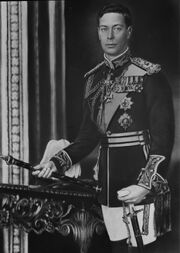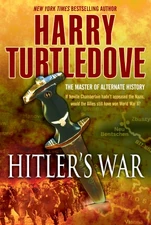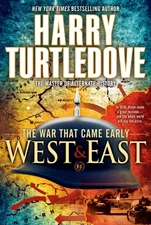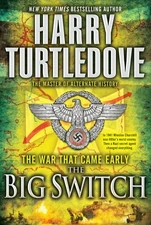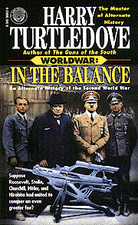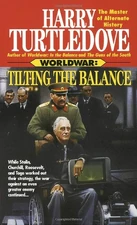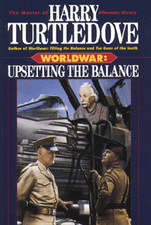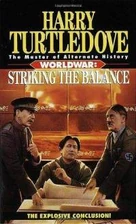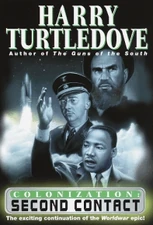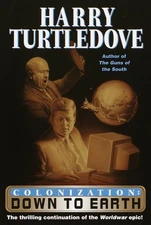TR (Message Wall | contribs) (→Notes) |
No edit summary |
||
| Line 17: | Line 17: | ||
|type of appearance = Oblique contemporary references}}{{Clearright}}{{The War That Came Early Historical Character |
|type of appearance = Oblique contemporary references}}{{Clearright}}{{The War That Came Early Historical Character |
||
|appearance = ''[[Hitler's War]]''<br>through<br>present |
|appearance = ''[[Hitler's War]]''<br>through<br>present |
||
| − | |type of appearance = Contemporary references}}{{Stack end}}'''George VI''' (born Albert Frederick Arthur George, 1895–1952) was [[Monarch of the United Kingdom|King]] of the [[United Kingdom]] and the British Dominions from 11 December 1936 until his death. He was the last Emperor of [[India]] (until 1947) and the last King of [[Ireland]] (until 1949). He succeeded his brother, [[Edward VIII of Britain|Edward VIII]], who voluntary abdicated in 1936. Then Prince Albert reluctantly ascended, taking the regnal name "George VI" in an effort to reconnect with his late father. [[World War II]] took place during George's reign; while George's role in the military strategy appears to have been minimal, his refusal to leave [[London]] during the Battle of Britain and his public visibility did much for the morale of the British people. |
+ | |type of appearance = Contemporary references}}{{Stack end}}'''George VI''' (born Albert Frederick Arthur George, 1895–1952) was [[Monarch of the United Kingdom|King]] of the [[United Kingdom]] and the British Dominions from 11 December 1936 until his death. He was the last Emperor of [[India]] (until 1947) and the last King of [[Ireland]] (until 1949). He succeeded his older brother, [[Edward VIII of Britain|Edward VIII]], who voluntary abdicated in 1936. Then Prince Albert reluctantly ascended, taking the regnal name "George VI" in an effort to reconnect with his late father. [[World War II]] took place during George's reign; while George's role in the military strategy appears to have been minimal, his refusal to leave [[London]] during the Battle of Britain and his public visibility did much for the morale of the British people. |
The remaineder of George's reign saw the dissolution of the British Empire and the establishment of the British Commonwealth. |
The remaineder of George's reign saw the dissolution of the British Empire and the establishment of the British Commonwealth. |
||
| Line 28: | Line 28: | ||
While the Race understood that George VI was a titular "emperor" like theirs, they also understood that the prime minister wielded the true power in Britain.<ref>''[[In the Balance]]'', pg. 177.</ref> Thus, George VI was deemed a "petty emperor."<ref>''[[Upsetting the Balance]]'', pg. 145.</ref> |
While the Race understood that George VI was a titular "emperor" like theirs, they also understood that the prime minister wielded the true power in Britain.<ref>''[[In the Balance]]'', pg. 177.</ref> Thus, George VI was deemed a "petty emperor."<ref>''[[Upsetting the Balance]]'', pg. 145.</ref> |
||
| − | + | After he died in 1952, he was succeeded by his daughter [[Elizabeth II of Britain#Elizabeth II in Worldwar|Elizabeth II]].<ref>See, e.g., ''[[Second Contact]]'', pg. 68, PB.</ref> |
|
==George VI in [[The War That Came Early]]== |
==George VI in [[The War That Came Early]]== |
||
| Line 43: | Line 43: | ||
By 1941, George had sent his elder brother [[Edward VIII of Britain#Edward VIII in The War That Came Early|Edward VIII]] to [[Bermuda#Bermuda in The War That Came Early|Bermuda]] due to his support for [[Adolf Hitler#Adolf Hitler in The War That Came Early|Adolf Hitler]] and [[Benito Mussolini#Benito Mussolini in The War That Came Early|Benito Mussolini]].<ref>Ibid, Chapter 10.</ref> |
By 1941, George had sent his elder brother [[Edward VIII of Britain#Edward VIII in The War That Came Early|Edward VIII]] to [[Bermuda#Bermuda in The War That Came Early|Bermuda]] due to his support for [[Adolf Hitler#Adolf Hitler in The War That Came Early|Adolf Hitler]] and [[Benito Mussolini#Benito Mussolini in The War That Came Early|Benito Mussolini]].<ref>Ibid, Chapter 10.</ref> |
||
| − | In 1944, a [[Committee for the Salvation of the German Nation|coup]] toppled [[Adolf Hitler (The War That Came Early)|Adolf Hitler]], and Germany sued for peace. |
+ | In 1944, a [[Committee for the Salvation of the German Nation|coup]] toppled [[Adolf Hitler (The War That Came Early)|Adolf Hitler]], and Germany sued for peace. Even after this, the military government remained in power. |
==Notes== |
==Notes== |
||
Revision as of 20:43, 25 January 2015
| ||||||||||||||||||||||||||||||||||||||
George VI (born Albert Frederick Arthur George, 1895–1952) was King of the United Kingdom and the British Dominions from 11 December 1936 until his death. He was the last Emperor of India (until 1947) and the last King of Ireland (until 1949). He succeeded his older brother, Edward VIII, who voluntary abdicated in 1936. Then Prince Albert reluctantly ascended, taking the regnal name "George VI" in an effort to reconnect with his late father. World War II took place during George's reign; while George's role in the military strategy appears to have been minimal, his refusal to leave London during the Battle of Britain and his public visibility did much for the morale of the British people.
The remaineder of George's reign saw the dissolution of the British Empire and the establishment of the British Commonwealth.
George VI in Worldwar
George VI reigned during the aborted World War II and the Race Invasion. Per the laws of the country, he left the oversight of Britain's diplomacy and defense to his prime minister, Winston Churchill.[1]
After the Peace of Cairo, George's realm was substantially reduced, as India, Australia, and Britain's colonial possessions were ceded to the Race.[2] Canada was still nominally a British Dominion, but the United States took the initiative in protecting Canada's independence.[3]
While the Race understood that George VI was a titular "emperor" like theirs, they also understood that the prime minister wielded the true power in Britain.[4] Thus, George VI was deemed a "petty emperor."[5]
After he died in 1952, he was succeeded by his daughter Elizabeth II.[6]
George VI in The War That Came Early
George VI had been on the throne just under two years when Germany's invasion of Czechoslovakia triggered a war in Europe.[7]
In late 1939, George VI's government offered to negotiate a peace between the Soviet Union and The Empire of Japan. The British government's offer was motivated out of self-interest: if peace could be established, the Soviet Union could concentrate on Germany, and British holdings in Asia would be protected if Japanese aggression were checked. Japan refused the offer, however.[8]
In the Summer of 1940, George's prime minister, Neville Chamberlain reached a truce with Germany, and Britain joined Germany in the war against the Soviet Union.[9] In addition, Chamberlain and his successor, Horace Wilson, adopted a policy of scrutinizing their opponents.[10]
George deeply disapproved of this political turn, though as a constitutional monarch he did not attempt to interfere. In the spring of 1941, when General Archibald Wavell led a military coup to overthrow Wilson, George immediately knighted Wavell.[11]
George called for elections to be held at a time of the provisional government's choosing. The provisional government repeatedly delayed the elections, a move which greatly imperiled their already dubious legitimacy. George did what he could to shore up that legitimacy, insisting that the provisional government enjoyed his full confidence in a public address.[12]
By 1941, George had sent his elder brother Edward VIII to Bermuda due to his support for Adolf Hitler and Benito Mussolini.[13]
In 1944, a coup toppled Adolf Hitler, and Germany sued for peace. Even after this, the military government remained in power.
Notes
- ↑ See Worldwar generally.
- ↑ Striking the Balance, pg. 375.
- ↑ Ibid., pgs. 397-8.
- ↑ In the Balance, pg. 177.
- ↑ Upsetting the Balance, pg. 145.
- ↑ See, e.g., Second Contact, pg. 68, PB.
- ↑ See The War That Came Early series generally.
- ↑ West and East, pg. 377.
- ↑ The Big Switch, pg. 150-51.
- ↑ Id., at pg. 342.
- ↑ Coup d'Etat ch 10
- ↑ Ibid ch 12
- ↑ Ibid, Chapter 10.
| Royal offices (OTL) | ||
|---|---|---|
| Preceded by Edward VIII |
King of the United Kingdom and British dominions beyond the seas 1936–1952 |
Succeeded by Elizabeth II as queen of the Commonwealth realms |
| Emperor of India 1936–1947 |
Indian independence | |
| New title | Head of the Commonwealth 1949–1952 |
Succeeded by Elizabeth II |
| ||||||||||||||||||||||
| |||||||||||||||||||||||||
